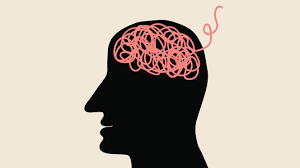We are fallen gods when we become real. But then there are some gods who are toxic. When we are a normal person, we are a fallen healthy god with qualities and defects. When we “deify” someone and the relationship ends in deification state and superficiality of idealization, in which the defects are not seen, and has not yet fallen from altar, that's when it becomes even more difficult to overcome the end of the relationship because it is an idealized and fanciful image of person being 'soulmate' promised by universe, who lost and who in the future will only be happy by half or even if is happy with another someone, believes that there will always be 'something' missing. Pure illusion! And this can still cause difficulties to be happy.
As for the 'soulmate' belief becoming obsessive, can never live an intensely happy and healthy relationship, because will always be waiting for the 'lid for the pot'. The question of 'half-face' belief is when meet someone or ''found by someone'', or waiting to meet someone, and it is believed that person would be 'soulmate' and, therefore, many people subject to absurd situations to be in a relationship that they considered perfect at the beginning and it is not known how things changed with time when the idealized 'god' fell from altar and they do not accept that the partner they would judge perfect became real. When the situation gets even worse, the real person can be bad and you need to wake up.
The attachment 'soul mate' belief, makes a fantasy and obsessive search (relationship with stranger idealized projection, perfect character, itself 'copy'), playing a strange to prove that its 'half face' or 'soulmate'. People selling an image that would be 'clone' in all senses, mirror reflection of who believes is 'soulmate', even convince that are equals in everything, way dressing, speaking, same tastes, interests, gestures, etc. When a strange has access phone, occupation...through 'medical record' or other ways, etc., it's easier playing a similar character and look 'soulmate'.

The 'soulmate' myth is damaging to a healthy relationship. To be continuously searching for or waiting for the perfect, ideal person corresponds to a toxic and pathological personality. This toxic personality can be considered “pathological believers”, who would be these people obsessed with the ideal of the soulmate, especially when a relationship ends (even if it was a superficial relationship by phone, internet, letters) in the idealization, fantasy and projection phase and the special and perfect 'god' did not leave the altar, or only in initial conversations and meetings in which they want to do the same things, talk about the same things and for this they believe to be 'soulmates'. Anyway, a fantasy without daily coexistence with a real person.

The 'soulmate' myth feeds the misleading and damaged idea that love is something that starts from the outside and that depends on half of another person to make it totally right. The responsibility for the success or failure of the relationship lies in the luck (or lack) of finding perfect partner destined. If the pathological believer is not convinced that has found 'soulmate', will not invest heavily in a relationship with a real person. In these beliefs there be indication of a future abusive and toxic relationship on the pathological believer part, who believes that has not yet found (or lost) the 'soulmate'. Who believes that found it, but is rejected, it can cause a low self-esteem in relation to idealized partner that would be 'tailor-made'. It can cause rejection, if believe a person wouldn't be the 'soulmate'. So, to feed the 'soulmate' myth it's bad for people.
When the pathological believer does not believe that is relating 'soulmate', or that 'lost' in a affair still in the deification phase, may act in an abusive manner with its current partner and that made it real with coexistence, always humiliating and placing defects, reducing it even if only by thought. Or when someone believes that has found soulmate, but realizes that is not as or more corresponded as before and subject itself to everything to satisfy its idealized 'god' and that believes that was made exclusively for its. The fanciful idea that there is a 'soul mate' also mortgage happiness and not fully live a healthy and happy relationship with a real person instead of the imagination of a special 'ideal' of the custom-made world, made by people who knew little about themselves.

Thus, in psychotherapies there is a demand people with a character still idealized about someone in whom believed to be 'soulmate'. That person who was perfect, 'lid of the pot' that was missing to fill its void, fantasies and dreams of 'fairy tales'. If you stay focused on this issue, you will never live a relationship intensely and you will not be happy, because you will always be waiting for what will never come, that doesn't exist in truly, only temporarily for people who don't really know each other yet. For with the end of the 'deification' phase, a real person in the relationship would come (which ended in the 'deification' phase, hence the obsession). If this phase and obsession cannot be overcome, the pathological believer requires therapeutic follow-up. Healthy adult people want and need real people, not limiting seek waiting eternally 'halves' and 'twins' idealized in fantasies, phone, internet, few dateing...
NOTE Some fans of US TV serie Criminal Minds devoted to the character Spencer Reid and his affair interest recurring character Maeve Donovan, often repeat the term soulmate to refer Spencer Reid's (psychology graduate) phone affair with Maeve Donovan (geneticist). Attachment to 'soul mate' beliefs is an eternal fantasy and obsessive search (strangers project themselves into a perfect ideal character, 'copy' of the other). A stranger convinces the 'soul mate' to be 'made for each other', representing a 'clone' image in all senses, a reflection in the mirror of someone who believes he is a 'soulmate' and equal in dressing, speaking, gestures , likes, interests, accessing information and data, etc., you will notice details about the crush and create a similar character. Pop culture influences this as ''natural and spontaneous'' in American literary series and TV. The Criminal Minds series romanticized a geneticist plot with access to ''patient'' exams arranged through email or phone contacts after allegedly praising an article about this ''patient'' who knows where, maybe over the internet although this agent ' 'genius'' hates the internet, it is not known how this ''patient'' sent the exam, if it was by mail or if they agreed to leave the exam somewhere for her to pick up without meeting or if he only sent the report of the exam by fax, photograph, etc., this was a mystery and all very superficial. This geneticist exchanged mysterious phone calls with this admirer ''patient'' (he didn't know her at all, just by her first name) deciding when he should get in touch with her, while she offered ''medical advice'', motivational, recommending vitamins, good nights sleep all over the phone. The geneticist and this admirer ''patient'', who was an FBI agent and considered a ''genius'', started flirting and exchanging confidences in which they seemed to be pretty much the same person and she occasionally spoke at high speed bizarrely like him. Over time he began to disobey her by calling her from pay phones every day, completely obsessed, addicted and emotionally dependent on a stranger who seemed increasingly to be identical to him in everything as his FBI coworkers supported this ' 'phone affair'' extolling the agent and the geneticist as ''genius''. The geneticist even made a statement to the agent, and a colleague of the agent asked him why he didn't respond to a stranger's statement. This agent was a needy and immature man of about 31 years old, traumatized and of low self-esteem over his standard appearance of a tall, white, light-eyed man, he was regarded as a ''nerd'', narcissistic trait proud of being a ''genius '' validated by his co-workers, was a psychology graduate (supposedly autistic, schizophrenic/borderline conditions vaguely stated in the series; he did not do psychotherapy and neglected his mental health) fantasized months hanging in payphone booths for incredible, miraculous and endless coincidences of having just about everything in common with a complete stranger. Even straightening his shirt collar in the mirror was the same. The agent ''patient'' didn't know about the geneticist's fiance and her sinister trouble with a stalker. Dazzled by attracting an ideal, 'maternal', 'genial', 'identical' to him and mysterious, the patient fantasized the geneticist as his '1st girlfriend', deifying her. This fanciful plot made many fans of the serie believers in the 'soul mate' myth. When doesn't seek psychologist help, it's really more difficult to overcome.

Would Spencer Reid, 'focused on science', be a soulmate myth pathological believer? He neglect his mental/emotional health, not looking specialized psychological help needed. In 15 years there were traumas and alleged psychological 'disorders' superficially mentioned have been accumulated. The 'eternally tormented genius' sold well became 'sexy'. What good is the soulmate myth that Spencer Reid and Maeve Donovan fans, often pedantically repeat and seriouslly believe? What is the relevance, utility, need for soulmate myth? What does this belief interfere with and add to a real, happy and healthy relationship? This myth doesn't make people happy. This magical thought is neither healthy in fiction nor in reality. Mention for maintaining Spencer Reid's platonic crush for a married coworker. Spencer Reid and obsessions for inaccessible and mysterious women, 'perfect match', ideal affair, picturesque, women who are his copies, bizarre adventures, maternal figures, fantasies, ghosts...Many reasons to seek psychotherapy.



















